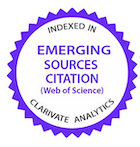Ácido linoleico conjugado como potencial bioativo para modulação e criotolerância de gametas e embriões
DOI:
https://doi.org/10.1590/1809-6891v21e-63574Resumo
O ácido linoleico conjugado (CLA) é uma mistura de isômeros posicionais do ácido linoleico encontrado em carne e laticínios de ruminantes. É um tipo de gordura trans muito utilizada por atletas para como suplemento alimentar devido a um suposto efeito de maximizar a utilização das reservas de gordura corporal. O interesse na suplementação de dietas e meios de cultura com o CLA é uma área emergente, exigindo estudos para elucidar seus benefícios nos parâmetros reprodutivos e na criopreservação. Dessa forma, o objetivo dessa revisão foi discutir os efeitos do CLA na criotolerância de oócitos, espermatozóides e embriões. Alguns estudos já demonstraram seu uso na criopreservação da linhagem germinativa. Entre esses, foi observado que a suplementação de CLA durante a maturação in vitro de oócitos pode aumentar sua viabilidade pós-congelamento e capacidade de desenvolvimento. Em relação ao uso de CLA no esperma, existem poucos estudos e seus resultados ainda são inconclusivos. Por último, estudos sobre a suplementação de CLA em meios de cultura de embriões mostraram resultados promissores, indicando que essa molécula bioativa é capaz de modular a captação de lipídios em blastômeros. No total, essas descobertas demonstram o potencial uso do CLA como uma molécula bioativa para melhorar a linha germinativa e a criotolerância ao embrião e abrir novas perspectivas no campo da reprodução humana e animal.
Palavras-chave: acúmulo lipídico, criopreservação, embrião, oócito, sêmen.
Downloads
Referências
Jang TH, Park SC, Yang JH, Kim JY, Seok JH, Park US, Choi CW, Lee SR, Han, J. Cryopreservation and its clinical applications. Integr Med Res Epub 2017;1:12-18. Disponível em: 10.1016/j.imr.2016.12.001
» https://doi.org/10.1016/j.imr.2016.12.001
Pegg DE. Principles of Cryopreservation. In: Wolkers W., Oldenhof H. (eds) Cryopreservation and Freeze-Drying Protocols. Methods in Molecular Biology (Methods and Protocols), 2015;3-19. Disponível em: https://www.springer.com/gp/book/9781493921928
» https://www.springer.com/gp/book/9781493921928
Doyong G, Critser JK. Mechanisms of Cryoinjury in Living Cells ILAR Journal, 2000; 41(4): 187-196. Disponível em: 10.1093/ilar.41.4.187
» https://doi.org/10.1093/ilar.41.4.187
Lapa M, Marques CC, Alves SP, Vasques MI, Baptista MC, Carvalhais I. Effect of trans-10 cis-12 conjugated linoleic acid on bovine oocyte competence and fatty acid composition. Reprod Domest Anim, 2011;46: 904-910. Disponível em: 10.1111/j.1439-0531.2011.01762.x
» https://doi.org/10.1111/j.1439-0531.2011.01762.x
Teixeira SMP, Chaveiro AEN, Silva JFM. Effect of trans-10, cis-12 isomer of conjugated linoleic acid on boar smen quality after cryopreservation. Animal Reproduction, 2017;14(2):400-405. Disponível em: 10.21451/1984-3143-AR831
» https://doi.org/10.21451/1984-3143-AR831
Pereira, R.M.; Baptista, M.C.; Vasques, M.I.; Horta, A.E.; Portugal, P.V.; Bessa, R.J.; 2007. Cryosurvival of bovine blastocysts is enhanced by culture with trans-10 cis-12 conjugated linoleic acid. Anim Reprod Sci, 2007; 98: 293-301. Disponível em: DOI: 10.1016/j.anireprosci.2006.03.015
» https://doi.org/10.1016/j.anireprosci.2006.03.015
Batista RITP, Raposo NRB, Campos-Junior PHA, Pereira MM, Camargo LSA, Carvalho BC, Gama MAS, Viana JHM. Trans-10, cis-12 conjugated linoleic acid reduces neutral lipid content and may affect cryotolerance of in vitro- produced crossbred bovine embryos. Journal of Animal Science and Biotechnology, 2014;5:33. Disponível em: 10.1186/2049-1891-5-33
» https://doi.org/10.1186/2049-1891-5-33
Bessa RJB, Santos-Silva J, Ribeiro JMR. Reticulo-rumen biohydrogenation and the enrichment of ruminant edible products with linoleic acid conjugated isomers. Livestock Production Science, 2000; 63: 201-211. Disponível em: https://doi.org/10.1016/S0301-6226(99)00117-7
» https://doi.org/10.1016/S0301-6226(99)00117-7
Pariza MW, Ashoor SH, Chu FS, Lund DB. Effect of temperature and time on mutagen formation in pan-fried hamburger. Cancer Letters, Amsterdam, 1979; 7: 63-69. Disponível em: DOI: 10.1016/s0304-3835(79)80097-x
» https://doi.org/10.1016/s0304-3835(79)80097-x
Park Y, Albright KJ, Liu W, Storkson JM, Cook ME, Pariza MW. Effect of conjugated linoleic acid on body composition in mice. Lipids, 1997; 32: 853-858. Disponível em: DOI: 10.1007/s11745-997-0109-x
» https://doi.org/10.1007/s11745-997-0109-x
Dugan MER, Aalhus JL, Jeremiah LE, Kramer JKG, Schaefer AL. The effects of feeding conjugate linoleic acid on subsequent pork quality. Canadian Journal of Animal Science, 1999; 79: 45-51. Disponível em: https://doi.org/10.4141/A98-070
» https://doi.org/10.4141/A98-070
Bee G. Dietary conjugated linoleic acids clatter adipose tissue and milk lipids of pregnant and lactating sows. 1997. Journal of Nutrition, 2000; 130: 2292-2298.
Baumgard LH, Corl BA, Dwyer DA, Saebo A, Bauman DE. Identification of the conjugated linoleic acid isomer that inhibits fat synthesis. American Journal Physiology Regulatory Comparative Physiology, 2000; 278: 179-84. Disponível em: DOI: 10.1152/ajpregu.2000.278.1.R179.
» https://doi.org/10.1152/ajpregu.2000.278.1.R179
Sebedio JL, Gnaedig S, Chardigny JM. Recent advances in conjugated linoleic acid research. Current Opinion Clinical Nutrition Metabolic Care,1999; 2(6): 499-506.
Bauman DE, Griinari JM. Regulation and nutritional manipulation of milk fat: low-fat milk syndrome. Livestock Production Science,2001; 70: 15-29. Disponível em: https://doi.org/10.1016/S0301-6226(01)00195-6
» https://doi.org/10.1016/S0301-6226(01)00195-6
Kepler CR, Hirons KP, McNeill JJ, Tove SB. Intermediates and products of the biohydrogenation of linoleic acid by Butyrivibrio fibrisolvens. Journal of Biological Chemistry, 1966; 241: 1350-1354.
Harfoot CG, Halzlewood GP. Lipid metabolism in the rumem. Hobson, P.N. (Ed.). The rumen microbial ecosystem, New: Elsevier, 1988: 527.
Griinari JM, Bauman DE. Biosynthesis of CLA and incorporation into milk fat. Yurawecz, M. P. et al., Advances in Conjugated Linoleic Acid Research, AOCS Press, Champaign, IL,1999: 180-200. Disponível em: https://doi.org/10.1093/jn/130.9.2285
» https://doi.org/10.1093/jn/130.9.2285
Coakley M, Ross RP, Nordgren M, Fitzgerald G, Dever R, Stanton C. Conjugated linoleic acid biosynthesis by human derived Bifidobacterium species. Journal of Applied Mocrobiology, 2003; 94: 138-145. Disponível em: DOI: 10.1046/j.1365-2672.2003.01814.x
» https://doi.org/10.1046/j.1365-2672.2003.01814.x
Ando A, Ogawa J, Kishino S, Shimizu S. Conjugated linoleic acid production from castor oil by Lactobacillus plantarum JCM 1551. Microbial and Enzyme Technology, 2004 35: 40-45. Disponível em: DOI: 10.1016/j.enzmictec.2004.03.013
» https://doi.org/10.1016/j.enzmictec.2004.03.013
Stewart CS, Flynt HJ, Bryant MP. The rumen bacteria. in The Rumen Microbial Ecosystem. P. N. Hobson and C. S. Stewart, ed. Blackie Academic and Professional, New York, NY, 1997; 10-72.
Griinari JM, Dwyer DA, MCGuire MA, Bauman DE, Palmiquist DL, Nurmela KVV. Trans-octadecenoic acid and milk fat depression in lactating dairy cows. Journal of Dairy Science, 1998; 81: 1251-1261. Disponível em: https://doi.org/10.3168/jds.S0022-0302(98)75686-3
» https://doi.org/10.3168/jds.S0022-0302(98)75686-3
Chouinard PY, Bauman DE, Corl BA, Baumard LH, McGuire MA, Giesy JG. An update on conjugated linoleic acid. Cornell Nutrition Conference Feed Manufacturers, 1999; 93-101.
Griinari JM, Corl BA, Lacy SH, Chouinard PY, Nurmela KV, Bauman DE. Conjugated linoleic acid is synthesized endogenously in lacting dairy cows by Δ9 desaturase. Journal Nutrition, 2000; 130(9): 2285-2291. Disponível em: DOI: 10.1093/jn/130.9.2285
» https://doi.org/10.1093/jn/130.9.2285
Perfield JW, Bernal-Santos G, Overton TR, Bauman DE. Effects of dietary supplementation of rumen protected conjugated linoleic acid dairy cows during established lactation. Journal of Dairy Science, 2002; 85: 2609-2617. Disponível em: https://doi.org/10.3168/jds.S0022-0302(02)74346-4
» https://doi.org/10.3168/jds.S0022-0302(02)74346-4
Corl BA, Baumgard LH, Dwyer DA, Griinari JM, Philips BS, Bauman DE. The role of delta-9-desaturase in the production of cis-9, trans-11. Journal of Nutritional Biochemistry,2001; 12: 622-630. Disponível em: DOI: 10.1016/s0955-2863(01)00180-2
» https://doi.org/10.1016/s0955-2863(01)00180-2
Kay JK, Mackle TR, Auldist MJ, Thomson NA, Bauman DE. Endogenous synthesis and enhancement of conjugated linoleic acid in pasture-fed dairy cows. Proceedings of New Zealand Society Animal Production,2002; 62: 12-15.
Lee KN, Pariza MW, Ntambi JM. Conjugated linoleic acid decreases hepatic stearoyl-CoA desaturase mRNA expression. Biochemical and Biophysical Research Communications, 1998; 248: 817-821. Disponível em: https://doi.org/10.1006/bbrc.1998.8994
» https://doi.org/10.1006/bbrc.1998.8994
Park Y, Storkson JM, Ntambi JM, Cook ME, Sih CJ, Pariza MW. Inhibition of hepatic stearoyl-CoA desaturase activity by trans-10, cis-12 conjugated linoleic acid and its derivatives. Biochemical et Biophysical Acta,2000; 1486: 285-292. Disponível em: DOI:10.1016/s1388-1981(00)00074-3
» https://doi.org/10.1016/s1388-1981(00)00074-3
Horton JD, Goldstein JL, Brown MS. SREBPs: activators of the complete program of cholesterol and fatty acid synthesis in the liver. Journal Clinic Invest, 2002; 109: 1125-1131. Disponível em: doi: 10.1172/JCI15593
» https://doi.org/10.1172/JCI15593
Baumgard LH, Matitashvili E, Corl BA, Dwyer DA, Bauman DE. Trans-10, cis-12 conjugated linoleic acid decreases lipogenic rates and expression of genes involved in milk lipid synthesis in dairy cows. Journal of Dairy Science, 2002; 85: 2155. Disponível em: https://doi.org/10.3168/jds.S0022-0302(02)74294-X
» https://doi.org/10.3168/jds.S0022-0302(02)74294-X
Peterson DG Matitashvili EA, Bauman DE. Diet-induced milk fat depression in dairy cows results in increased trans-10, cis-12 CLA in milk fat and coordinate suppression of mRNA abundance for mammary enzymes involved in milk fat synthesis. J Nutr, 2003; 133: 3098-3102. Disponível em: DOI: 10.1093/jn/133.10.3098
» https://doi.org/10.1093/jn/133.10.3098
Granlund L, Pedersen JI, Nebb HI. Impaired lipid accumulation by trans-10 cis-12 during adipocyte differentiation is dependent on timing and length of treatment. Biochim Biophys Acta, 2005; 1687:11-22. Disponível em: DOI: 10.1016/j.bbalip.2004.08.018
» https://doi.org/10.1016/j.bbalip.2004.08.018
Pereira RM, Marques CC. Animal oocyte and embryo cryopreservation. Cell Tissue Bank, 2008; 9:267. Disponível em: DOI: 10.1007/s10561-008-9075-2
» https://doi.org/10.1007/s10561-008-9075-2
Al Darwich A, Perreau C, Petit MH, Papillier P, Dupont J, Guillaume D. Effect of PUFA on embryo cryoresistance, gene expression and AMPKα phosphorylation in IVF-derived bovine embryos. Prostaglandins Other Lipid Mediat, 2011; 93: 30-36. Disponível em: DOI: 10.1016/j.prostaglandins.2010.06.002
» https://doi.org/10.1016/j.prostaglandins.2010.06.002
Singer SJ, Nicolson GL. The fluid mosaic model of the structure of cell membranes. Science, 1972; 18;175(4023):720-31. Disponível em: DOI: 10.1126/science.175.4023.720
» https://doi.org/10.1126/science.175.4023.720
Watson H. Biological membranes. Essays Biochem, 2015; 15(59): 43-69. Disponível em: doi: 10.1042/bse0590043
» https://doi.org/10.1042/bse0590043
Vajta G, Nagy ZP. Are programmable freezers still needed in the embryo laboratory? Review on vitrification. Reprod Biomed Online, 2006; 12: 779-796. Disponível em: DOI: 10.1016/s1472-6483(10)61091-7
» https://doi.org/10.1016/s1472-6483(10)61091-7
Juchem SO, Cerri RLA, Villaseñor M, Galvão KN, Bruno RGS, Rutigliano HM, Depeters EJ, Silvestre FT, Thatcher WW, Santos JEP. Supplementation with calcium salts of linoleic and trans-octadecenoic acids improves fertility of lactating dairy cows. Reprod Dom Anim, 2010;45: 55-62. Disponível em: https://doi.org/10.3168/jds.2008-1614
» https://doi.org/10.3168/jds.2008-1614
Rahme LSTR. Efeito do ácido linoléico conjugado na sobrevivência pós criopreservação de embriões bovinos produzidos in vitro. Dissertação (Mestrado em Ciência Animal). Escola de Veterinária, Universidade Federal de Minas Gerais, MG, 2012. In: http://hdl.handle.net/1843/BUOS-8UHG53
» http://hdl.handle.net/1843/BUOS-8UHG53
Leite AC, Andrade VB, Silva EBM, Borges AM. Effect of conjugated linoleic acid addition in in vitro culture medium in F1 Holstein X Zebu embryo survival post vitrification. Arq. Bras. Med. Vet. Zootec, 2017; 69 (6): 1385-1392. Disponível em: http://dx.doi.org/10.1590/1678-4162-9238
» http://dx.doi.org/10.1590/1678-4162-9238
Leão BCS, Rocha-Frigoni NAS, Cabral EC, Coelho MB, Ferreira CR, Eberlin MN, Accorsi MF, Nogueira E, Mingoti GZ. Improved embryonic cryosurvival observed after in vitro supplementation with conjugated linoleic acid is related to changes in the membrane lipid profile. Theriogenology, 2015; 84: 127-136. Disponível em: https://doi.org/10.1016/j.theriogenology.2015.02.023
» https://doi.org/10.1016/j.theriogenology.2015.02.023
Carvalho BP, Queirós Costa FQ, Detoni D, Rosa FB, Dias AJB. Use of conjugated linoleic acid (trans-10, cis-12) to cultivate bovine embryos: effect on cryoresistance and lipid content. R. Bras.Zootec., 2019; 48. Disponível em: http://dx.doi.org/10.1590/rbz4820180322
» http://dx.doi.org/10.1590/rbz4820180322
Hess RA, França LR. 2007 Spermatogenesis and the cycle of the seminiferous epithelium. In Molecular Mechanisms in Spermatogenesis (ed. Cheng, C.Y.), 2007; 1-15. Disponível em: DOI: 10.1007/978-0-387-09597-4_1
» https://doi.org/10.1007/978-0-387-09597-4_1
Siqueira JB, Guimarães JD, Costa EP, Henry M, Torres CAA, Silva MVGB, Silveira TS. Relação da Fertilidade de Sêmen bovino congelado com testes de avaliação espermática. Revista Brasileira de Zootecnia / Brazilian Journal of Animal Science, 2007; 36: 387-395
Bedford JM, Hoskins DD. The mammalian spermatozoon: morphology, biochemistry and physiology. In: Lamming, G. E. Marshall’s Physiology of Reproduction, London, Churchill Livingstone, 1990;2: 379-568.
Albert DH, Coniglio JG. Metabolism of eicosa-11,14-dienoic acid in rat testes. Evidence for delta8-desaturase activity. Bioch Biophys Acta, 1977; 21;489(3):390-6.
Ladha S. Lipid heterogeneity and membrane fluidity in a highly polarized cell, the mammalian spermatozoon. Journal of Membrane Biology, 1998;165: 1-10. Disponível em: https://doi.org/10.1007/s002329900415
» https://doi.org/10.1007/s002329900415
White I. Lipids and calcium uptake of sperm in relation to cold shock and preservation: A review. Reproduction, Fertility and Development, 1993; 5: 639-658. Disponível em: DOI: 10.1071/rd9930639
» https://doi.org/10.1071/rd9930639
Am-In N, Kirkwood R, Techakumphu M, Tantasuparuk W. Lipid profiles of sperm and seminal plasma from boars having normal or low sperm motility. Theriogenology, 2011; 75: 897-903. Disponível em: 10.1016/j.theriogenology.2010.10.032
» https://doi.org/10.1016/j.theriogenology.2010.10.032
Conquer JA, Martin JB, Tummon I, Watson L, Tekpetey F. Effect of DHA supplementation on DHA status and sperm motility in asthenozoospermic males. Lipids, 2000; 35: 149-154. Disponível em: DOI: 10.1007/BF02664764
» https://doi.org/10.1007/BF02664764
Samadian F, Towhidi A, Rezayazdi K, Bahreini M. Effects of dietary n-3 fatty acids on characteristics and lipid composition of ovine sperm. Animal, 2010; 4: 2017-2022. Disponível em: https://doi.org/10.1017/S1751731110001308
» https://doi.org/10.1017/S1751731110001308
Gholami H, Chamani M, Towhidi A, Fazeli MH. Effect of feeding a docosahexaenoic acid-enriched nutriceutical on the quality of fresh and frozen-thawed semen in Holstein bulls. Theriogenology, 2010; 74: 1548-1558. Disponível em: DOI: 10.1016/j.theriogenology.2010.06.025
» https://doi.org/10.1016/j.theriogenology.2010.06.025
Moallem U, Neta N, Zeron Y, ZAchut M, Roth Z. Dietary α-linolenic acid from flaxseed oil or eicosapentaenoic and docosahexaenoic acids from fish oil differentially alter fatty acid composition and characteristics of fresh and frozen-thawed bull semen. Theriogenology, 2015; 83: 1110-1120. Disponível em: DOI: 10.1016/j.theriogenology.2014.12.008
» https://doi.org/10.1016/j.theriogenology.2014.12.008
Surai P, Noble R, Sparks N, Speake B. Effect of long-term supplementation with arachidonic or docosahexaenoic acids on sperm production in the broiler chicken. Journal of Reproduction and Fertility, 2000; 120: 257-264.
Rooke JA, Shao CC, Speake BK. Effects of feeding tuna oil on the lipid composition of pig spermatozoa and in vitro characteristics of semen. Reproduction, 2001; 121: 315-322. Disponível em: DOI: 10.1530/rep.0.1210315
» https://doi.org/10.1530/rep.0.1210315
Stulnig TM, Huber J, Leitinger N, Imre EM, Angelisová P, Nowotny P, Waldhäusl W. Polyunsaturated eicosapentaenoic acid displaces proteins from membrane rafts by altering raft lipid composition. Journal of Biological Chemistry, 2001; 276: 37335-37340. Disponível em: doi: 10.1074/jbc.M106193200
» https://doi.org/10.1074/jbc.M106193200
Abdelatty AM, Badr OAM, Mohamed SA, Khattab MS, Dessouki SM, Farid OAA, Elolimy AA, Sakr OG, Elhady MA, Mehesen G, Bionaz M. Long term conjugated linoleic acid supplementation modestly improved growth performance but induced testicular tissue apoptosis and reduced sperm quality in male rabbit. PLoS ONE, 2020; 15(1). Disponível em: DOI: 10.1371/journal.pone.0231280
» https://doi.org/10.1371/journal.pone.0231280
Karimi R, Towhidi A, Zeinoaldini S, Rezayazdi K, Mousavi M, Safari H, Martinez-Pastor F. Effects of supplemental conjugated linoleic acids (CLA) on fresh and post-thaw sperm quality of Holstein bulls. Reprod Dom Anim., 2017; 1-9. Disponível em: DOI: 10.1111/rda.12932
» https://doi.org/10.1111/rda.12932
Maldjiana A, Pizzi F, Gliozzic T, Cerolinibi S, Penny P, Noble R. Changes in sperm quality and lipid composition during cryopreservation of boar sêmen. Theriogenology, 2005; 63: 411-421. Disponível em: DOI: 10.1016/j.theriogenology.2004.09.021
» https://doi.org/10.1016/j.theriogenology.2004.09.021
Vasquez JM, Roldan ERS. Phospholipid metabolism in boar spermatozoa and role of diacylglirecol species in the novo formation of phosphatidylcholine. Mol Rep, 1997; 47: 105-112. Disponível em: DOI: 10.1002/(SICI)1098-2795(199705)47:1<105::AID-MRD14>3.0.CO;2-0
» https://doi.org/10.1002/(SICI)1098-2795(199705)47:1<105::AID-MRD14>3.0.CO;2-0
Pérez-Pé R, Cebrian-Pérez JA, Muiño-Blanco T. Semen plasma protein prevent cold-shock membrane damage to ram spermatozoa, Theriogenology, 2001; 56: 425-434. Disponível em: https://doi.org/10.1016/S0093-691X(01)00574-X
» https://doi.org/10.1016/S0093-691X(01)00574-X
Hossain M.D.S, Tareq K, Hammano H, Tsujii KMA. Effect of fatty acids o boar sperm motility, viability and acrosome reaction, Reprod. Med. Biol., 2007; 6: 235-239. Disponível em: doi: 10.1111/j.1447-0578.2007.00191.x
» https://doi.org/10.1111/j.1447-0578.2007.00191.x
Takahashi T, R. Itoh H. Nishinomiya M, Katoh N. Manabe, Effect of linoleic acid albumin in a dilution solution and long-term equilibration for freezing of bovine spermatozoa with poor freezability, Reprod. Domest. Anim, 2012; 47: 92-97. Disponível em: https://doi.org/10.1111/j.1439-0531.2011.01806.x
» https://doi.org/10.1111/j.1439-0531.2011.01806.x
Kaeoket K. Cryopreservation of boar spermatozoa: an important role of antioxidants. Katkov I (Ed.). Current Frontiers in Cryopreservation. Rijeka, Croatia: InTech, 2012; 139-164.
Soares MP, Brandelli A, Celeghini ECC, Arruda RP, Rodriguez SAF. Effect of cis-9, trans-11 and trans-10, cis-12 isomers of conjugated linoleic acid on the integrity and functionality of cryopreserved bovine spermatozoa. Cryobiology, 2013; 67: 102-105. Disponível em: DOI: 10.1016/j.cryobiol.2013.05.003
» https://doi.org/10.1016/j.cryobiol.2013.05.003
Verstegan J, Iguer-Quada M, Onclin K. Computer assisted semen analyzers in andrology research and veterinary practice. Theriogenology, 2002; 57: 149-179. Disponível em: http://dx.doi.org/10.1016 / S0093-691X (01) 00664-1
» http://dx.doi.org/10.1016 / S0093-691X (01) 00664-1
Hummitzsch K, Irving-Rodgers HF, Hatzirodos N, Bonner W, Sabatier, Reinhardt DP, Sado Y, Ninomiya Y, Wilhelm D, Rodgers RJ. A new model of development of the ovary and mammalian follicles. Plos One, 2013; 8. Disponível em: DOI: 10.1371/journal.pone.0055578
» https://doi.org/10.1371/journal.pone.0055578
Ferguson EM, Leese HJ. Triglyceride content of bovine oocytes and early embryos. J. Reprod Fert, 1999; 116: 373-378. Disponível em: DOI: 10.1530/jrf.0.1160373
» https://doi.org/10.1530/jrf.0.1160373
Donnez J, Dolmans MM. Fertility preservation on women. N Engl J Med, 2017; 377: 1657-1665. Disponível em: DOI: 10.1056/NEJMra1614676
» https://doi.org/10.1056/NEJMra1614676
De Santis L, Coticchio G, Paynter S, Albertini D, Hutt K, Cino I. Permeability of human oocytes to ethylene glycol and their survival and spindle configurations after slow cooling cryopreservation. Hum Reprod., 2007; 22: 2776-2783. Disponível em: https://doi.org/10.1093/humrep/dem240
» https://doi.org/10.1093/humrep/dem240
Gualtieri R, Iaccarino M, Mollo V, Prisco M, Iaccarino S, Talevi R. Slow cooling of human oocytes: ultrastructural injuries and apoptotic status. Fertil Steril, 2009; 91: 1023-34. Disponível em: DOI:https://doi.org/10.1016/j.fertnstert.2008.01.076
» https://doi.org/10.1016/j.fertnstert.2008.01.076
Arav A. Cryopreservation of oocytes and embryos. Theriogenology, 2017; 81 :96-102. Disponível em: DOI: 10.1016/j.theriogenology.2013.09.011
» https://doi.org/10.1016/j.theriogenology.2013.09.011
Pereira RM, Marques CC, Baptista MC, Vasques MI, Horta AEM. Influência da suplementação de ácido araquidônico e inibição da ciclooxigenase / lipoxigenase no desenvolvimento de embriões bovinos precoces. Rev Bras. Zoot, 2006; 35: 1-6.
Isachenko V, Isachenko E, Michelmann HW, Alabart JL, Vazquez I, Bezugly N, Nawroth F. Lipolysis and ultrastructural changes of intracellular lipid vesicles after cooling of bovine and porcine GV-oocytes. Anat Histol Embryol, 2001; 30:333-338. Disponível em: DOI: 10.1046/j.1439-0264.2001.00339.x
» https://doi.org/10.1046/j.1439-0264.2001.00339.x
Silva-Santos, K. C., Ferreira, C. R., Santos, G. M. G., Eberlin, M. N., Siloto, L. S., Rosa, C. O., Marcantonio, T. N., and Seneda, M. M. MALDI-MS lipid profiles of oocytes recovered by ovum pickup from Bos indicus and 1/2 indicus_taurus with high vs low oocyte yields. Reprod. Domest. Anim. 2014, 49, 711-718. Disponível em: doi: 10.1111/rda.12352
» https://doi.org/10.1111/rda.12352
Aardema, H., Vos, P. L. A. M., Lolicato, F., Roelen, B. A. J., Knijn, H. M., Vaandrager, A. B., Helms, J. B., and Gadella, B. M. Oleic acid prevents detrimental effects of saturated fatty acids on bovine oocyte developmental competence. Biol. Reprod. 2011, 85, 62-69. Disponível em: https://doi.org/10.1095/biolreprod.110.088815
» https://doi.org/10.1095/biolreprod.110.088815
Christina R, Ferreira AF, Alan K, Jarmusch A, Valentina Pirro A, Clint M, AlfaroA, Andres F, Gonzalez-Serrano BE, Heiner Niemann B, Matthew B, Wheeler C, Rathnaweera AC, Rabel C, Judy E, Hallett D, Rebecca Houser D, Annemarie Kaufman D, Graham Cooks RA. Ambient ionisation mass spectrometry for lipid profiling and structural analysis of mammalian oocytes, preimplantation embryos and stem cells. Reproduction, Fertility and Development, 2015, 27, 621-637. Disponível em: http://dx.doi.org/10.1071/RD14310
» http://dx.doi.org/10.1071/RD14310
Matos JE, Marques CC, Moura TF, Baptista MC, Horta AEM, Soveral G, Pereira RMLN. Conjugated linoleic acid improves oocyte cryosurvival through modulation of the cryoprotectants influx rate. Biology and Endocrinology, 2015; 13:60. Disponível em: https://doi.org/10.1186/s12958-015-0059-3
» https://doi.org/10.1186/s12958-015-0059-3
Almiñana C, Cuello C. What is new in the cryopreservation of embryos? Anim. Reprod., 2015; 12(3): 418-427.
Saragusty J, Arav A. Current progress in oocyte and embryo cryopreservation by slow freezing and vitrification. Reproduction, 2011; 141: 1-19. Disponível em: DOI: 10.1530/REP-10-0236
» https://doi.org/10.1530/REP-10-0236
Pollard JW, Leibo SP. Comparative cryobiology of in vitro and in vivo derived bovine embryos. Theriogenology, 1993; 39: 287.
Hasler JF, Henderson WB, Hurtgen PJ, Zin ZK, McCauley AD, Mower SA, Neely B, Shuey LS, Stokes JE, Trimmer SA. Production freezing and transfer of bovine IVF embryos and subsequent calving results. Theriogenology, 1995; 42: 141-152.
Seidel Jr GE. Modifying oocytes and embryos to improve their cryopreservation. Theriogenology, 2006; 65: 228-235. Disponível em: DOI: 10.1016/j.theriogenology.2005.09.025
» https://doi.org/10.1016/j.theriogenology.2005.09.025
McEvoy TG, Coull GD, Broadbent PJ, Hutchinson JS, Speak BK. Fatty acid composition of lipids in immature cattle, pig and sheep oocytes with intact zona pellucida. J Reprod Fertil, 2000; 118: 163-170.
Charpigny G, Guesnet P, Marquant-LeGuiene B, Heyman Y, Mermillod P, Humblot P. Fatty acid composition of triglycerides, phosphatidylcholines and phosphatidylethanolamines of bovine embryos. Les actes du BRG, 2003; 4: 159-172.
Mingoti GZ, Caiado-Castro VS, Méo SC, Barretto LS, Garcia JM. The effect of interaction between macromolecule supplement and oxygen tension on bovine oocytes and embryos cultured in vitro. Zygote, 2009; 17: 321-328. Disponível em: DOI: 10.1017/s0967199409005450
» https://doi.org/10.1017/s0967199409005450
Rizos D, Gutiérrez-Adán A, Pérez-Garnelo S, de la Fuente J, Boland MP, Lonergan P. Bovine embryo culture in the presence or absence of serum: implications for blastocyst development, cryotolerance, and messenger RNA expression. Biol Reprod, 2003; 68: 236-243. Disponível em: https://doi.org/10.1095/biolreprod.102.007799
» https://doi.org/10.1095/biolreprod.102.007799
Stein A. Decreasing variability in your cell culture. Biotechniques, 2007; 43: 228-229. Disponível em: DOI: 10.2144/000112561
» https://doi.org/10.2144/000112561
Pariza MW, Park Y, Cook ME. The biologically active isomers of conjugated linoleic acid. Progress in Lipid Research, 2001; 40: 283-298. Disponível em: 10.1016/s0163-7827(01)00008-x
» https://doi.org/10.1016/s0163-7827(01)00008-x
Sehat N, Kramer JK, Mossoba MM, Yurawecz MP, Roach JA, Eulitz K. Identification of conjugated linoleic acid isomers in cheese by gas chromatography, silver ion high performance liquid chromatography and mass spectral reconstructed ion profiles. Comparison of chromatographic elution sequences Lipids, 1998; 33: 963-971. Disponível em: DOI: 10.1007/s11745-998-0293-8
» https://doi.org/10.1007/s11745-998-0293-8
Dias, R.L.O.; Leme, L.O.; Sprígigo, J.F.W.; Pivato, I; Dode, M.A.N. 2020. Effect of delipidant agents during in vitro culture on the development, lipid content, gene expression and cryotolerance of bovine embryos. Reprod Dom Anim., 2020; 55:11-20. Disponível em: https://doi.org/10.1111/rda.13579
» https://doi.org/10.1111/rda.13579
NRC. Nutrient Requirements of laboratory Animals. 4h rev. ed. Natl. Acad. Sci., Washington, DC, 1995. Disponível em: DOI: 10.17226/4758
» https://doi.org/10.17226/4758
Butler WR. Nutritional interactions with reproductive performance in dairy cattle. Anim. Reprod. Sci., 2000; 60-61: 449-457. Disponível em: DOI: 10.1016/s0378-4320(00)00076-2
» https://doi.org/10.1016/s0378-4320(00)00076-2
Castañeda-Guitiérrez E, Benefield BC, Veth MJ, Santos NR, Gilbert RO, Butler WR, Bauman DE. 2007 Evaluation of the mecanism of action of conjugated linoleic acid isomers on reproduction of dairy cows. Journal of Dairy Science, 2007; 90: 4253 - 4264. Disponível em: DOI:https://doi.org/10.3168/jds.2007-0117
» https://doi.org/10.3168/jds.2007-0117
Taylor CG, Zahradka P. Dietary conjugated linoleic acid and insulin sensitivity and resistance in rodent models. The American Journal of Clinical Nutrition, 2004; 79(6): 1164S-1168S. Disponível em: DOI: 10.1093/ajcn/79.6.1164s
» https://doi.org/10.1093/ajcn/79.6.1164s
Darwash AO, Lamming GE, Woolliams JA. The phenotypic association between the interval to post-partum ovulation and traditional measures of fertility in dairy cattle Anim. Sci., 1997; 65: 9-16. Disponível em: DOI: https://doi.org/10.1017/S1357729800016234
» https://doi.org/10.1017/S1357729800016234
Griinari JM, Bauman DE. Milk fat depression: concepts, mechanisms and management applications. In: Sejrsen, K.; Hvelplund, T.; Nielsen, M. O. Ruminant physiology: digestion, metabolism and impact of nutrition on gene expression, immunology and stress. Wageningen, The Netherlands: Wageningen Academic, 2006; 389-417.
Veth MJ, Bauman DE, Koch W, Mann GE, Pfeiffer AM, Butler WR. Efficacy of conjugated linoleic acid for improving reproduction: A multi-study analysis in early-lactation dairy cows. Journal of Dairy Science, 2009; 92: 2662-2669. Disponível em: DOI:https://doi.org/10.3168/jds.2008-1845
» https://doi.org/10.3168/jds.2008-1845
Rodney RM, Celi P, Scott W, Breinhild K, Lean IJ.Effects of dietary fat on fertility of dairy cattle: A meta-analysis and meta-regression. Dairy Sci. 98:1-20 © American Dairy Science Association®, 2015. Disponível em: http://dx.doi.org/10.3168/jds.2015-9528
» http://dx.doi.org/10.3168/jds.2015-9528
Rodney RM, Celi P, Scott W, Breinhild K, Lean IJ. Effects of nutrition on the fertility of lactating dairy cattle Author links open overlay panel. Journal of Dairy Science Volume 101, Issue 6, June 2018, Pages 5115-5133 Disponível em: https://doi.org/10.3168/jds.2017-14064
» https://doi.org/10.3168/jds.2017-14064
Abolghasemi A, Dirandeh E, Ansari pirsaraei Z, Shohreh B. Dietary conjugated linoleic acid (CLA) supplementation alters the expression of genes involved in the endocannabinoid system in the bovine endometrium and increases plasma progesterone concentrations, Theriogenology (2016), Disponível em: doi: 10.1016/j.theriogenology.2016.05.003.
» https://doi.org/10.1016/j.theriogenology.2016.05.003
Oliveira RC, Pralle RS, de Resende LC, Nova CHPC, Caprarulo V, Jendza JA, et al. (2018) Prepartum supplementation of conjugated linoleic acids (CLA) increased milk energy output and decreased serum fatty acids and β-hydroxybutyrate in early lactation dairy cows. PLoS ONE 13(5): e0197733. Disponível em: https://doi.org/10.1371/journal. pone.0197733
» https://doi.org/10.1371/journal. pone.0197733
Tawny L, Chandler A, Robert T, Fugatea, Joshua A, Jendza B, Arnulf Troescher C, Heather M. White A. Conjugated linoleic acid supplementation during the transition period increased milk production in primiparous and multiparous dairy cows. Animal Feed Science and Technology 224 (2017) 90-103. Disponível em: http://dx.doi.org/10.1016/j.anifeedsci.2016.12.008
» http://dx.doi.org/10.1016/j.anifeedsci.2016.12.008
Castaneda-Gutiérrez E, Overton TR, Butler WR, Bauman DE. Dietary supplements of two doses of calcium salts of conjugated linoleic acid during the transition period and early lactation. J. Dairy Sci. 2005. 88, 1078-1089. Disponível em: DOI: 10.3168/jds.S0022-0302(05)72775-2
» https://doi.org/10.3168/jds.S0022-0302(05)72775-2
Z. Csillik,*1 V. Faigl,† M. Keresztes,† E. Galamb,‡ H. M. Hammon,§ A. Tröscher,* H. Fébel,# M. Kulcsár,† F. Husvéth,‡ Gy. Huszenicza,† and W. R. Butler‖. Effect of pre- and postpartum supplementation with lipid-encapsulated conjugated linoleic acid on reproductive performance and the growth hormone-insulin-like growth factor-I axis in multiparous high-producing dairy cows. J. Dairy Sci. 100:1-11 Disponível em: https://doi.org/10.3168/jds.2016-12124
» https://doi.org/10.3168/jds.2016-12124
Gliozzi TM, Zaniboni L, Maldjian A, Luzi F, Maertens L, and Cerolini S. Quality and lipid composition of spermatozoa in rabbits fed DHA and vitamin E rich diets. Theriogenology. 2009; 71(6), pp. 910-919. Disponível em: https://doi.org/10.1016/j.theriogenology.2008.10.022
» https://doi.org/10.1016/j.theriogenology.2008.10.022
Zamora-Zamora V, Figueroa-Velasco JL, Cordero-Mora JL, Nieto-Aquino R, García-Contreras ADC, Sánchez-Torres MT. Conjugated linoleic acid supplementation does not improve boar semen quality and does not change its fatty acid profile. Veterinaria México. 2017; 4(3), pp. 1-15. Disponível em: doi: 10.21753/vmoa.4.3.387.
» https://doi.org/10.21753/vmoa.4.3.387
Absalón-Medina VA, Bedford-Guaus SJ, Gilbert RO, Siqueira LC, Eposito G, Schneider A, Cheong SH, Butler WR. The effects of conjugated linoleic acid isomers cis-9,trans-11 and trans-10,cis-12 on in vitro bovine embryo production and cryopreservation. Journal of Dairy Science Volume 97, Issue 10, October 2014, Pages 6164-6176. Disponível em: DOI: 10.3168/jds.2013-7719
Downloads
Publicado
Como Citar
Edição
Seção
Licença
Copyright (c) 2020 Ciência Animal Brasileira

Este trabalho está licenciado sob uma licença Creative Commons Attribution 4.0 International License.
Autores que publicam nesta revista concordam com os seguintes termos:
- Autores mantém os direitos autorais e concedem à revista o direito de primeira publicação, com o trabalho simultaneamente licenciado sob a Licença Creative Commons Attribution que permite o compartilhamento do trabalho com reconhecimento da autoria e publicação inicial nesta revista.
- Autores têm autorização para assumir contratos adicionais separadamente, para distribuição não-exclusiva da versão do trabalho publicada nesta revista (ex.: publicar em repositório institucional ou como capítulo de livro), com reconhecimento de autoria e publicação inicial nesta revista.
- Autores têm permissão e são estimulados a publicar e distribuir seu trabalho online (ex.: em repositórios institucionais ou na sua página pessoal) a qualquer ponto antes ou durante o processo editorial, já que isso pode gerar alterações produtivas, bem como aumentar o impacto e a citação do trabalho publicado (Veja O Efeito do Acesso Livre).






























